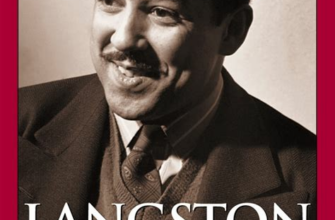Within the realms of scientific discovery and global impact, certain individuals emerge as catalysts of change, forever altering the course of history. One such luminary, whose remarkable journey continues to captivate generations, is a pioneer of modern medicine and a harbinger of hope. Born in the late 19th century, this savant embarked upon a lifelong exploration that would unravel the secrets of nature and transform the landscape of healthcare as we know it.
Amidst the backdrop of an ever-evolving world, this indomitable spirit, hailed as a beacon of scientific ingenuity, traversed the realms of knowledge, leaving an indelible mark on human civilization. Through the sheer force of his curiosity, he revolutionized the field of bacteriology, unraveling the complexities of microscopic lifeforms that hold both the power to heal and to destroy. His fervent dedication to advancing the frontiers of scientific understanding secured his place as a luminary in the annals of medical history.
Like a trailblazing explorer venturing into the unknown, he ventured into unexplored territories, delving into the untrodden corridors of medical science. As he perused the vast expanse of a world unseen, he stumbled upon a revelation that would alter the course of mankind's battle against disease. This revelation, akin to a divine intervention, unlocked unprecedented possibilities and unleashed a torrent of transformative breakthroughs, forever transforming the medical landscape and bolstering the foundations of medical practice.
Alexander Fleming: A Trailblazer in the Field of Medicine

In this section, we delve into the remarkable contributions made by the exceptional mind of Alexander Fleming, who revolutionized the field of medicine and forever changed the way we understand and treat infectious diseases.
Alexander Fleming's pioneering work brought forth a new era in medicine, characterized by breakthrough discoveries and groundbreaking practices. His invaluable research and inventions paved the way for modern medical advancements and reshaped the understanding of microbial infections. With his relentless commitment to scientific inquiry, Fleming uncovered the potential of antibiotics and their profound impact on combating bacterial illnesses. Through his perseverance and keen observations, he fostered a new understanding of the intricate relationship between microorganisms and disease, revolutionizing the way medicine is practiced today.
Fleming's discovery of penicillin fundamentally changed the course of medicine. By chance, his observation of a mold contamination in a petri dish led to the identification of penicillin, a powerful antibiotic capable of killing various harmful bacteria. This breakthrough opened doors to a new era in the treatment of infectious diseases, saving countless lives and ushering in a new age of medical possibilities. Fleming's determination to harness the potential of penicillin led to the development of effective antibiotics that provided a powerful weapon against previously untreatable diseases. |
Furthermore, Fleming's contributions extended beyond the realm of antibiotics. He also played a significant role in advancing medical research, particularly in the areas of immunology and serology. His work shed light on the body's natural defense mechanisms and how they interact with foreign substances. Fleming's insights into the immune system fueled further exploration and understanding of our body's ability to fight off infections and laid the foundation for future developments in immunology and the development of vaccines. |
From Humble Origins to Nobel Laureate
The journey of Alexander Fleming, a remarkable individual, from his modest beginnings to becoming a distinguished Nobel Laureate, encompasses a path that is truly inspiring. Emerging from humble origins, Fleming's innate curiosity, dedication, and unyielding passion for scientific discovery propelled him towards greatness.
| Inception of a Revolutionary Mind | Cultivation of a Curious Spirit |
| Equipped with a thirst for knowledge, Fleming's early experiences nurtured his inquisitive nature that would later shape his groundbreaking discoveries. | Fleming's insatiable curiosity acted as a driving force, pushing him to explore the unknown and challenge conventional wisdom in the pursuit of scientific excellence. |
From Modest Means to Astounding Heights
| Overcoming Adversity | The Path to Perseverance |
| Despite facing numerous obstacles along the way, Fleming's indomitable spirit and determination allowed him to rise above his humble beginnings and strive for greatness. | Fleming's journey to becoming a Nobel Laureate was lined with countless setbacks, yet his unwavering resolve and unwavering belief in his abilities pushed him forward on this remarkable trajectory. |
The Legacy of Excellence
| Impactful Discoveries | Revolutionizing Scientific Paradigms |
| Fleming's groundbreaking discoveries and pioneering research not only transformed the field of medicine but also sparked a paradigm shift that reverberated throughout the scientific community. | His profound impact on numerous disciplines continues to resonate, leaving an indelible mark on the scientific landscape and shaping the future of medical advancements. |
The profound impact of Alexander Fleming's extraordinary journey serves as a testament to the power of determination, relentless pursuit of knowledge, and the unwavering belief in one's abilities. From his humble origins to his status as a Nobel Laureate, Fleming's life stands as a symbol of inspiration, urging others to embark on their own remarkable quests.
The Discovery That Transformed the Field of Medicine

Within the pages of history lies a momentous breakthrough that forever changed the course of medical science. This watershed discovery, made by the brilliant mind of Alexander Fleming, revolutionized the way we perceive and combat various diseases. Through astute observation and unwavering dedication, Fleming stumbled upon a revelation that would ultimately save countless lives and pave the way for modern medicine as we know it.
A chance encounter with a fortuitous circumstance led Fleming to witness an extraordinary phenomenon, one that held the key to conquering the elusive enemy of humanity - infectious diseases. It was a moment of sheer serendipity, as he noticed the inhibitory effect of a certain substance on the growth of bacteria. This unexpected revelation opened a new realm of possibilities, sparking a chain reaction of scientific advancements that would shape the future of healthcare.
With this groundbreaking discovery, a newfound understanding emerged - the potential for harnessing the power of microscopic organisms to combat deadly infections. Fleming's insight paved the way for the development of antibiotics, medicines that would go on to eradicate once-deadly diseases and offer hope to millions around the globe. The impact of this breakthrough cannot be overstated, as it laid the foundation for a transformative era in medical research and treatment.
- The Identification of Penicillin: A Lifesaving Wonder Drug
- Unleashing the Potential of Antibiotics: A Battle Against Bacterial Infections
- Reshaping Medical Practices: The Revolution of Antibiotic Therapy
- A Legacy That Continues: The Ongoing Exploration of Antimicrobial Agents
As we delve deeper into the journey of Alexander Fleming and the profound discovery that altered the course of medical history, we uncover the remarkable intricacies and enduring legacy of this scientific triumph. The subsequent advancements and ongoing research in the field of antibiotics continue to shape the way we approach and combat diseases, emphasizing the enduring impact of Fleming's remarkable contributions.
Legacy and Enduring Influence
The impact of Alexander Fleming's life and work continues to reverberate throughout the scientific community and beyond. His groundbreaking discoveries and revolutionary advancements in the field of medicine have left an indelible mark on the world, shaping the way we understand and combat infectious diseases.
Fleming's noteworthy contributions, including the discovery of penicillin, have paved the way for the development of countless life-saving antibiotics. The profound impact of penicillin and other antimicrobial drugs cannot be understated, as they have saved millions of lives worldwide and transformed the way we approach infectious diseases.
In addition to his invaluable discoveries, Fleming's commitment to scientific excellence and tireless dedication to his work serve as an inspiration for aspiring scientists and researchers. His unwavering pursuit of truth and curiosity has set a high standard for scientific investigation and continues to motivate new generations to push the boundaries of knowledge.
Fleming's legacy also extends beyond the field of medicine. His contributions have had a profound influence on various scientific disciplines, such as microbiology, pharmacology, and biochemistry. His innovative methods and approaches have laid the foundation for further advancements in these fields and continue to shape scientific research and understanding.
Furthermore, Fleming's legacy serves as a reminder of the potential for groundbreaking discoveries to arise from unexpected sources. His accidental discovery of penicillin highlights the importance of open-mindedness and the capacity to recognize and seize opportunities. This lesson resonates not only within the scientific community but also across diverse industries, emphasizing the significance of embracing unexpected and unconventional pathways to drive progress and innovation.
In conclusion, Alexander Fleming's legacy and lasting impact are characterized by his groundbreaking discoveries, commitment to scientific excellence, and the inspiration he provides to future generations of scientists. His contributions continue to shape our understanding of medicine and serve as a testament to the power of human curiosity and ingenuity.
FAQ
What are some important achievements of Alexander Fleming?
Alexander Fleming is most renowned for his discovery of the antibiotic substance penicillin, which revolutionized the field of medicine and saved countless lives. Additionally, he made significant contributions to immunology and bacteriology, conducting extensive research on diseases like staphylococci and polio.
How did Alexander Fleming come across the discovery of penicillin?
In 1928, Fleming accidentally discovered the antibacterial properties of the Penicillium mold while working with cultures of staphylococcus bacteria. He noticed that a mold contaminant inhibited the growth of bacteria around it. This led to the development of penicillin, which became the world's first widely used antibiotic.
What impact did Alexander Fleming's discovery of penicillin have on the field of medicine?
Alexander Fleming's discovery of penicillin marked a turning point in medical history. The introduction of antibiotics revolutionized the treatment of bacterial infections and significantly reduced mortality rates. It paved the way for the development of other antibiotics, making infections that were once deadly easily treatable.
What other notable contributions did Alexander Fleming make in the scientific community?
Apart from his groundbreaking discovery of penicillin, Alexander Fleming made several other notable contributions to science. He conducted extensive research on lysozyme, an enzyme that has antimicrobial properties and is found in bodily fluids. Fleming also worked on improving the manufacture and delivery of penicillin, making it more accessible and effective for medical use.



